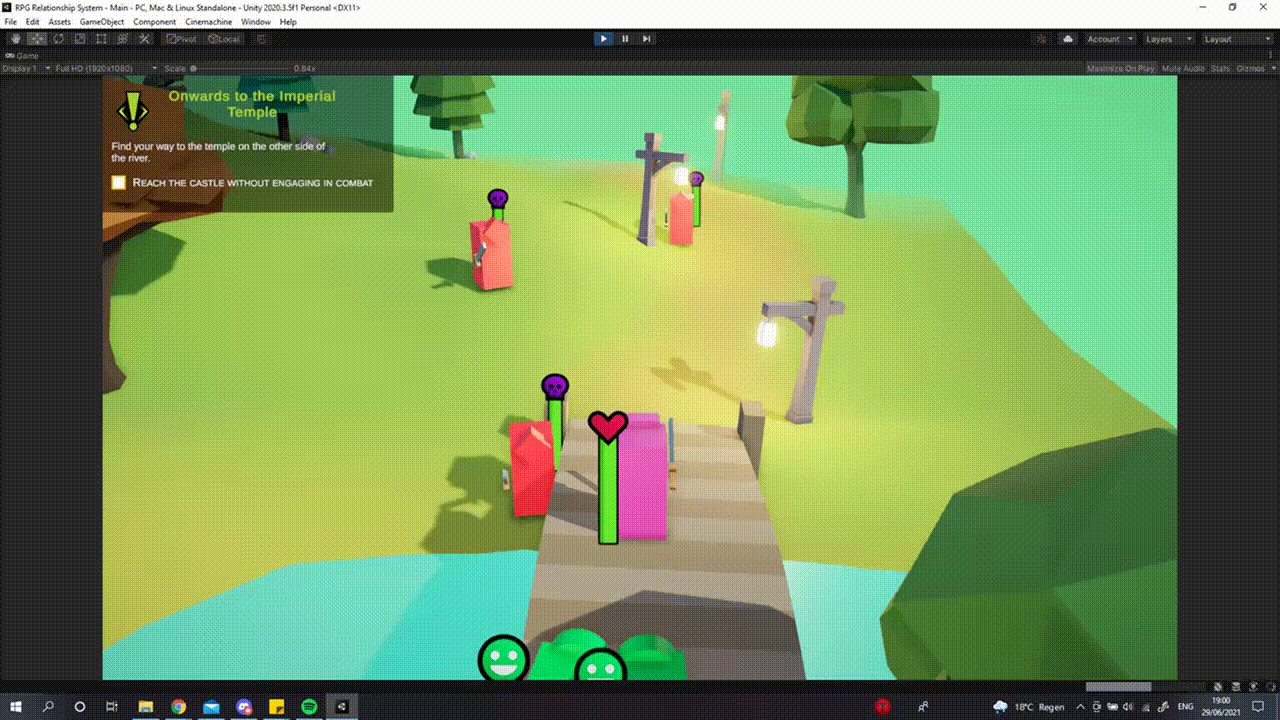Graduation Project
For my last year of college, I had to pick a topic for my graduation project which I would work on for about 5 months. Since I was already working for King Art at the time, on their unannounced fantasy RPG and I've always had an interest in how RPGs allow their players to build close relationships with, and attachments to their companions, I decided to do something with that.
I started off by researching what relationship systems in RPGs currently look like, how they work, and how similar they are to one another. Through this reference research I figured out that these were very transactional and seemingly one-sided; while the player works hard to earn the trust of their companions, completing tasks for them and pleasing them in dialogue, the companions often do not add much to the equation. The systems also have barely been innovated upon for years.
When I tried to research why this was the case I ran into a problem. Even though relationship systems are a staple of RPGs, they are nonetheless seldom the main topic of conference talks or written about in papers. There’s a substantial number of talks and papers about dialogue systems, social systems for multiplayer games and other adjacent topics, but relationship systems in and of themselves are rarely spoken about. After a long search for papers, talks and articles on relationship systems in RPGs, I was unable to find much on the topic.
I decided to dig a little deeper; looking at how social systems in multiplayer games are designed and researching real human relationships. When looking at why relationships between individuals are formed, qualities such as proximity, similarity, disclosure and reciprocity are highlighted to a great extent. However, as I mentioned before, this is not effectively utilised in relationship systems within single-player digital RPGs.
From all this research I formulated a baseline of what relationship systems in RPGs currently look like and came up with new mechanics that can be added on top of this based on my social systems and theoretic research. I've called this a Favour System.
Examples of my Favour System
More information on these and how they work can be found within my paper that I wrote on the subject.
The paper I wrote on the subject.
I then proceded to create a small prototype in Unity for this Favour System. I tested it out with developers from King Art and a few people who are avid RPG players.
Small Unity Prototype
While I could say that the system works in theory, and the digital implementation was a success, I can't say for certain if it has the intenden effect. For this I would need to test it out in a game with more context and involve narrative design, as it is still a big decisive factor in the system I've come up with.








